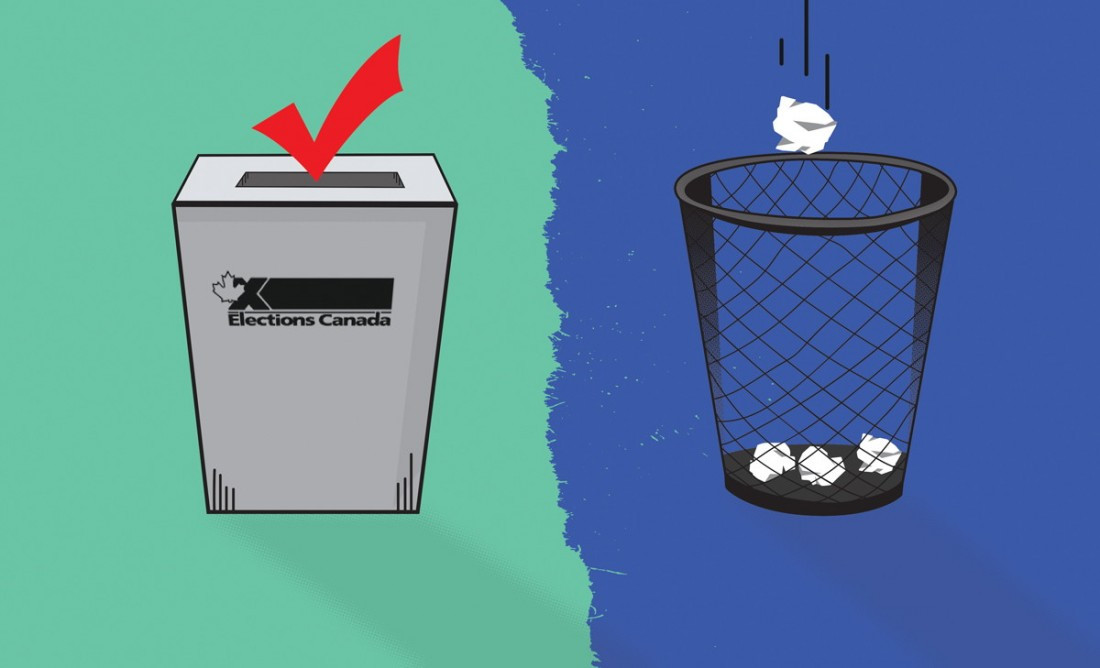The Illusion Of Democracy
Our votes really don’t matter, not much
She stood silently with a look of frustration and naive optimism. In her nervous hands, she grasped a sign that read “Stop Harper!”
Since that June 2011 day when Brigette DePape was escorted out of the Senate, the former page - who now works with the Council of Canadians - has been on a mission. DePape, originally from Winnipeg, recently sat down at the Free Press News Cafe with Free Press opinion editor Shannon Sampert to discuss her campaign to encourage Canadian youth to get out and vote.
“I think a lot of times as young people we feel powerless, and a lot of times disconnected … When we realize that - our votes do matter, they do count, it can be really empowering.”
The thing is, our votes really don’t matter, not much. Most of us don’t end up electing the candidates we voted for, and our core values aren’t reflected in official policy.
Statistics regarding Canadian policy and public opinion are hard to come by, perhaps as a result of recent federal policies such as scrapping of the long-form census, but U.S. data is readily available. In a 2014 paper by Martin Gilens and Benjamin I. Page of Princeton - Testing Theories of American Politics: Elites, Interest Groups, and Average Citizens - the authors examined how much influence people across the socio-economic spectrum had on policy. The results are troubling.
“Not only do ordinary citizens not have uniquely substantial power over policy decisions; they have little or no independent influence on policy at all.”
They found that policy is primarily determined by the will of the economic elites and special interests (AKA really rich people and big business).
That’s pretty damning for democracy. But it’s not that surprising.
Even if DePape manages to stop Harper, there’s no evidence that policy will reverse course. The tar sands will continue to dump carbon into the atmosphere, oil companies will continue to profit, civil liberties will continue to be targeted, and wars will still be waged in our name.
The reality is that we live in a plutocratic system masquerading as democracy.
But it’s not all hopeless. Change can come, but not from a ballot box.
In his book Imperial Ambitions: Conversations On The Post-9/11 World, Noam Chomsky elucidates on how he answers the question, “what can we do?”
“If you want to make changes in the world, you’re going to have to be there day after day doing the boring, straightforward work of getting a couple of people interested in an issue, building a slightly bigger organization, carrying out the next move, experiencing frustration, and finally getting somewhere. That’s how the world changes... Unless you develop an ongoing, living, democratic culture that can compel the candidates, they’re not going to do the things you voted for. Pushing a button and then going home is not going to change anything.”
Revolution won’t be won overnight, so you’d better be in it for the long haul.
Greg Gallinger is a freelance photographer, vegan food enthusiast, a purveyor of half-witted commentary and a reluctant citizen of the global technocracy.
Published in Volume 69, Number 24 of The Uniter (March 11, 2015)







